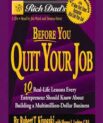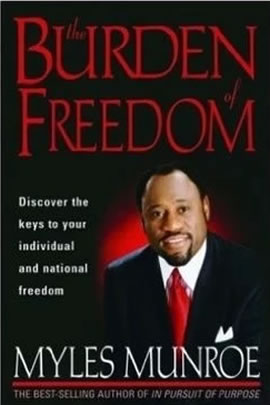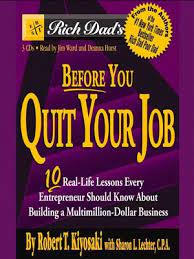Description
The Art Of Strategy
From ancient battlefields to the modern business landscape, competitors have tried innumerable approaches to conquering adversaries. Success for the victors has taken many forms and traveled many paths, but at its heart, winning strategy can be boiled down to ten universal principles. When learned and implemented, these principals become powerful drivers of business excellence. Renowned strategy expert William A. Cohen, whose considerable experience in the military, corporate, and academic sectors forms the basis for The Art of the Strategist, presents the timeless lessons of: * commitment to a definite objective * seizing and maintaining the initiative * economization to mass (concentration of resources) * positioning * surprise * multiple simultaneous alternatives * the indirect approach * simplicity * timing * exploiting success With examples including the conquests of Hannibal and Alexander the Great, the political triumphs of Bill Clinton, George W. Bush, and Arnold Schwarzenegger, and the business successes of internet giant VeriSign and other high-profile companies, The Art of the Strategist proves how superior strategy trumps other factors in almost every competitive arena. The ten lessons in turn form a roadmap to decisive victory in business
Competitive Strategy
Electrifying in its simplicity—like all great breakthroughs—Porter’s analysis of industries captures the complexity of industry competition in five underlying forces. Porter introduces one of the most powerful competitive tools yet developed: his three generic strategies—lowest cost, differentiation, and focus—which bring structure to the task of strategic positioning. He shows how competitive advantage can be defined in terms of relative cost and relative prices, thus linking it directly to profitability, and presents a whole new perspective on how profit is created and divided. In the almost two decades since publication, Porter’s framework for predicting competitor behavior has transformed the way in which companies look at their rivals and has given rise to the new discipline of competitor assessment.
More than a million managers in both large and small companies, investment analysts, consultants, students, and scholars throughout the world have internalized Porter’s ideas and applied them to assess industries, understand competitors, and choose competitive positions. The ideas in the book address the underlying fundamentals of competition in a way that is independent of the specifics of the ways companies go about competing.
Competitive Strategy has filled a void in management thinking. It provides an enduring foundation and grounding point on which all subsequent work can be built. By bringing a disciplined structure to the question of how firms achieve superior profitability, Porter’s rich frameworks and deep insights comprise a sophisticated view of competition unsurpassed in the last quarter-century.
Lords of Strategy
Remarkably, fifty years ago that’s the way it was. Businesses made plans, certainly, but without understanding the underlying dynamics of competition, costs, and customers. It was like trying to design a large-scale engineering project without knowing the laws of physics.
But in the 1960s, four mavericks and their posses instigated a profound shift in thinking that turbocharged business as never before, with implications far beyond what even they imagined. In The Lords of Strategy, renowned business journalist and editor Walter Kiechel tells, for the first time, the story of the four men who invented corporate strategy as we know it and set in motion the modern, multibillion-dollar consulting industry:
Bruce Henderson, founder of Boston Consulting Group
Bill Bain, creator of Bain & Company
Fred Gluck, longtime Managing Director of McKinsey & Company
Michael Porter, Harvard Business School professor
Providing a window into how to think about strategy today, Kiechel tells their story with novelistic flair. At times inspiring, at times nearly terrifying, this book is a revealing account of how these iconoclasts and the organizations they led revolutionized the way we think about business, changed the very soul of the corporation, and transformed the way we work
Good Strategy and Bad Strategy
Developing and implementing a strategy is the central task of a leader, whether the CEO at a Fortune 100 company, an entrepreneur, a church pastor, the head of a school, or a government official. Richard Rumelt shows that there has been a growing and unfortunate tendency to equate Mom-and-apple-pie values, fluffy packages of buzzwords, motivational slogans, and financial goals with “strategy.” He debunks these elements of “bad strategy” and awakens an understanding of the power of a “good strategy.”
A good strategy is a specific and coherent response to—and approach for overcoming—the obstacles to progress. A good strategy works by harnessing and applying power where it will have the greatest effect in challenges as varied as putting a man on the moon, fighting a war, launching a new product, responding to changing market dynamics, starting a charter school, or setting up a government program. Rumelt’s
nine sources of power—ranging from using leverage to effectively focusing on growth—are eye-opening yet pragmatic tools that can be put to work on Monday morning.
Surprisingly, a good strategy is often unexpected because most organizations don’t have one. Instead, they have “visions,” mistake financial goals for strategy,
and pursue a “dog’s dinner” of conflicting policies and actions.
Rumelt argues that the heart of a good strategy is insight—into the true nature of the situation, into the hidden power in a situation, and into an appropriate response. He shows you how insight can be cultivated with a wide variety of tools for guiding your
own thinking.
Good Strategy/Bad Strategy uses fascinating examples from business, nonprofit, and military affairs to bring its original and pragmatic ideas to life. The detailed examples range from Apple to General Motors, from the two Iraq wars to Afghanistan, from a small local market to Wal-Mart, from Nvidia to Silicon Graphics, from the Getty Trust to the Los Angeles Unified School District, from Cisco Systems to Paccar, and from Global Crossing to the 2007–08 financial crisis.
Reflecting an astonishing grasp and integration of economics, finance, technology, history, and the brilliance and foibles of the human character, Good Strategy/Bad Strategy stems from Rumelt’s decades of digging beyond the superficial to address hard questions with honesty and integrity
General Inquiries
There are no inquiries yet.















Reviews
There are no reviews yet.